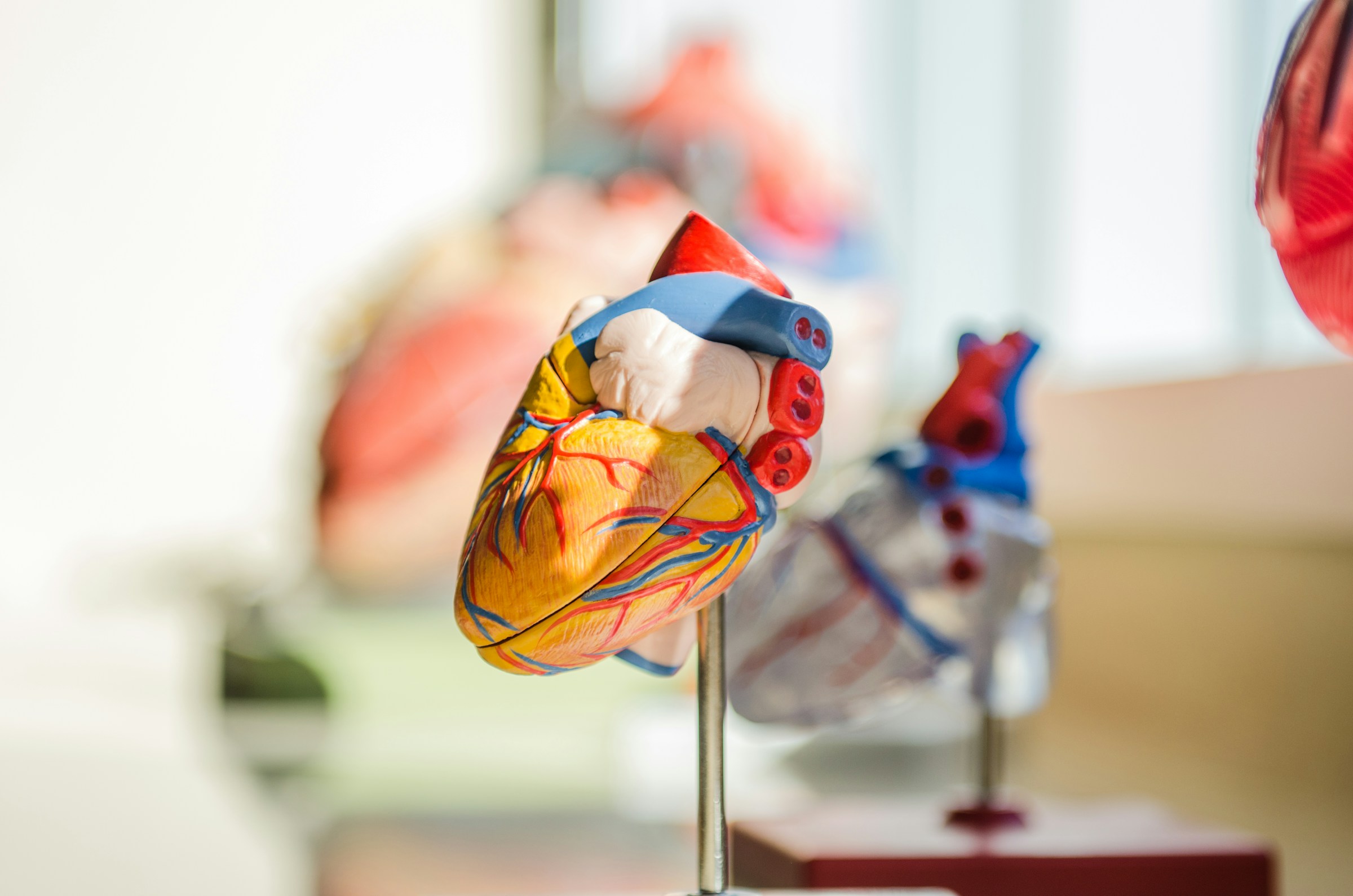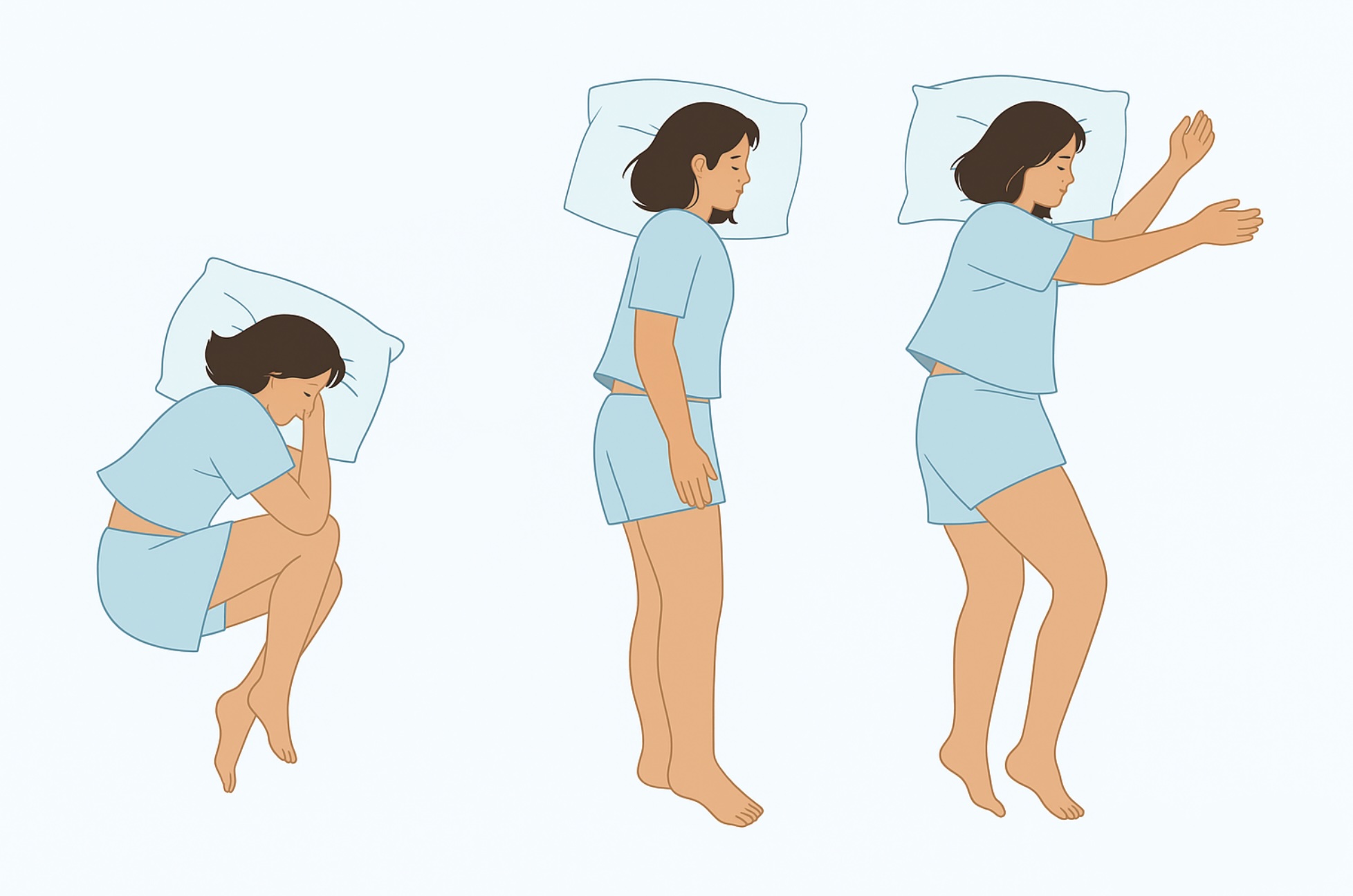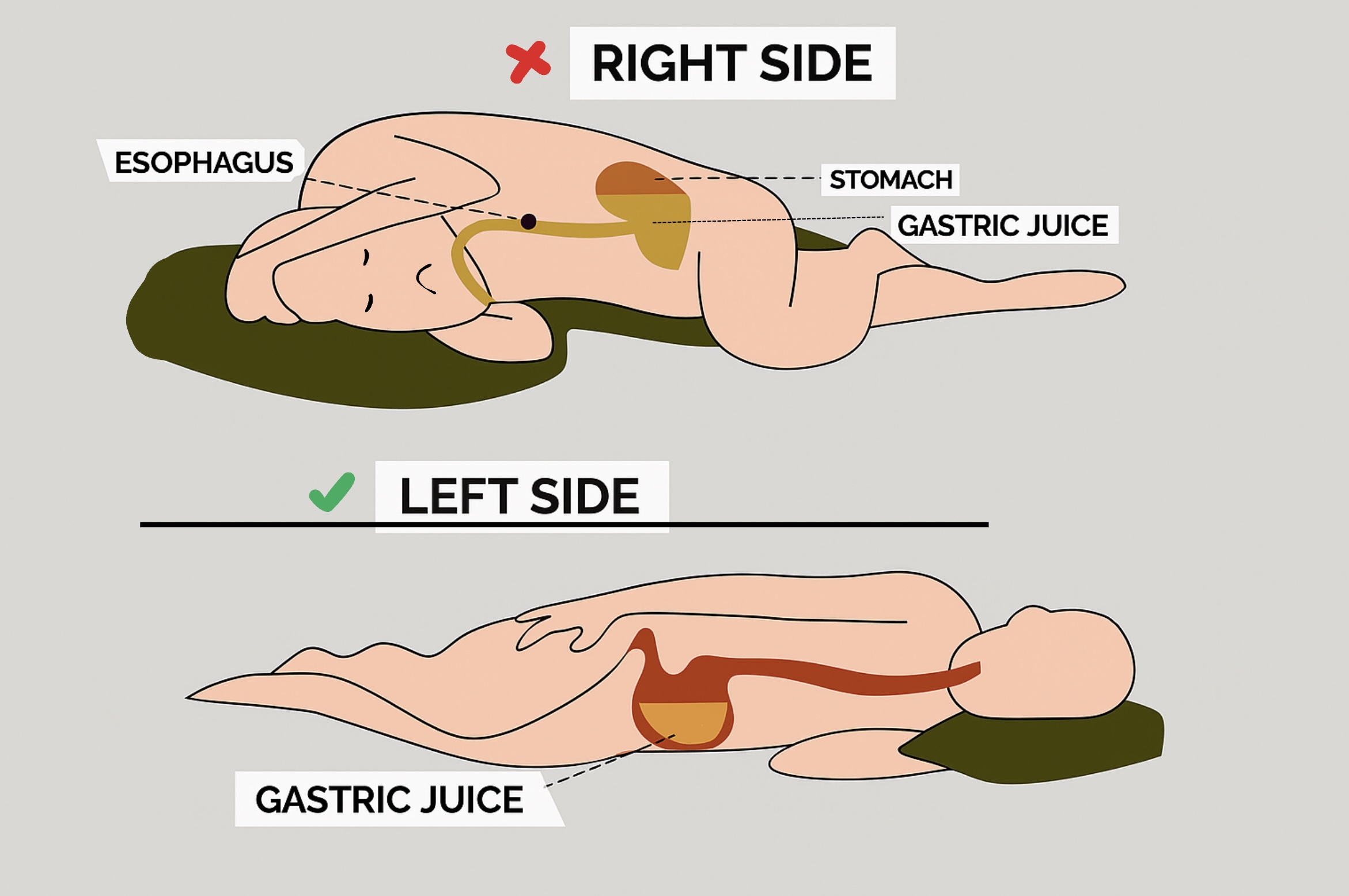
For most healthy individuals, sleeping on your left side poses no significant risk to heart health. However, people with heart failure may experience discomfort and instinctively avoid this position as a protective mechanism. Understanding the relationship between sleep position and cardiovascular system function is particularly important for those with existing heart disease.
Sleep position might seem like a small detail, but emerging research suggests it could play a role in cardiovascular health, particularly for those with existing heart disease or sleep disorders. The question of whether left-side sleeping affects the heart has sparked considerable scientific interest. While which sleeping position is best depends on individual factors, understanding the potential cardiac implications can help inform your choices so let’s dive into what science research tells us about sleeping your left side and how it could impact your heart.

When you lie on your left side, gravity causes your heart to shift slightly within the chest cavity. This repositioning, albeit small, can create several measurable changes:
The heart shifts and turns when sleeping on the left side, while the right side position allows the heart to be held in place by the mediastinum (the tissue between the lungs). This has been suggested to cause two effects:
First, changes in electrical activity: Research had documented that left-side sleeping causes ECG changes, with researchers first noticing in 1997 that side-sleeping caused noticeable changes to the heart's electrical activity measured with an electrocardiogram. However, these changes appear to be related to data collection rather than actual cardiac dysfunction so they jury is still out as to whether it truly causes ECG changes.
Second, hemodynamic effects or more simply how much blood is pumped through your heart: The positional shift can influence preload (the amount of blood returning to the heart) and may affect how efficiently the heart pumps blood, particularly in individuals with compromised cardiac function. Changes in positioning can also affect blood pressure and oxygen levels during sleep.
A groundbreaking study published in the Journal of the American College of Cardiology examined 75 patients with congestive heart failure and found they spontaneously avoided the left lateral decubitus position during sleep. This research provided compelling evidence for what cardiologists had observed anecdotally for years.
The key findings were:
The truth is there were good reasons why these patients all avoided sleeping on their left during sleep:
Trepopnea: Many heart failure patients experience a phenomenon called "trepopnea", increased difficulty breathing when adopting the left lateral position that improves when turning to the right side. This occurs because the enlarged heart creates additional pressure on the lungs when positioned on the left.
Hemodynamic Compromise: Studies show that lateral positioning worsens lung function in heart failure patients, with body position-related reductions being greatest in patients with the largest hearts.
Sympathetic Nervous System: Research suggests the left lateral position may be associated with increased sympathetic nervous activity in heart failure patients, potentially creating additional cardiovascular stress and affecting blood pressure regulation. This can also impact blood vessels and circulation patterns during sleep.
If you are a “healthy individual” (meaning you do not have a medical condition that would make it problematic to sleep on your left), sleeping on your left side is not bad for your heart and is in fact actually better for your overall health.
For people without heart conditions, the evidence suggests minimal concern. Current research doesn't support the idea that a certain sleeping position can affect your heart in a significant way for healthy individuals, though different positions can cause small, temporary changes in circulation.
There's simply not enough evidence supporting the claim that healthy individuals should choose a right-side sleeping position while avoiding the left side.
While some studies suggest that left-side sleeping might influence the heart's electrical activity and potentially increase the risk of arrhythmias in predisposed individuals, the clinical significance remains unclear. This is particularly relevant for people with conditions like atrial fibrillation or coronary artery disease. The changes in electrical activity appear to be related to the repositioning of the heart rather than actual electrical dysfunction.
Healthcare providers often recommend sleeping on the right side or in a more upright position to alleviate symptoms and improve breathing for heart failure patients.
Sleeping with the head of the bed elevated or using multiple pillows can help shift fluid that accumulates in the lungs downward, decreasing the work of breathing. Some patients may also experience sleep maintenance issues due to positioning discomfort.
Sleep Apnea: Most people with sleep apnea have much worse symptoms when sleeping on their back versus on their sides, making side sleeping generally beneficial regardless of which side. Obstructive sleep apnea is particularly position-dependent, and sleep apnea can significantly impact cardiovascular health through effects on blood pressure and cause high blood pressure. If you're experiencing signs of sleep apnea, consulting with a healthcare provider about optimal sleep positioning is important. Obstructive sleep apnea treatment often includes positive airway pressure therapy, which can be affected by sleep position.
Implantable Devices: People with implantable cardioverter defibrillators (ICDs) may find it more comfortable to sleep on the opposite side from where the device is implanted, as most ICDs are located on the left side.
Sleeping on the left side is recommended for pregnant people because it improves blood flow between the heart, fetus, uterus, and kidneys while keeping pressure off the liver. This demonstrates that left-side sleeping can actually be beneficial in certain physiological states.
The Sleep Heart Health Study (SHHS) represents one of the largest prospective cohort studies designed to investigate sleep-disordered breathing as risk factors for cardiovascular disease, enrolling 6,600 adult participants aged 40 years and older.
This landmark research has provided crucial insights into the relationship between sleep and cardiovascular health, though it primarily focused on sleep-disordered breathing rather than specific sleep positions. The study utilized ECG-based sleep spectrograms to generate maps of cardiopulmonary coupling based on heart rate variability, advancing our understanding of how sleep affects cardiovascular function.
The SHHS has helped establish that habitual short sleep duration is associated with weight gain, obesity, hypertension, inflammation, diabetes, heart attack, and stroke, emphasizing that sleep quality and duration matter more than position for overall cardiovascular health.
Current evidence strongly suggests that making sure you stay well-rested is important for maintaining optimal heart health, no matter the position in which you sleep. Sleep needs to be a priority, and only you can make sleep a priority. Understanding how to get better sleep encompasses far more than just position, it involves creating optimal conditions for restorative rest and managing sleep disorders that can impact high blood pressure and overall heart disease risk.
People who sleep less than six hours per night are 66% more likely to have hypertension than those who get seven to eight hours, highlighting that duration significantly outweighs position concerns. Poor sleep quality can also contribute to high blood pressure, atrial fibrillation, and various cardiovascular complications. Sleep apnea is one of the most significant blood pressure elevating conditions related to sleep disturbances.
Consider consulting a healthcare provider if you:
The current scientific evidence suggests that for most healthy individuals, sleeping on the left side is not harmful to heart health. The documented effects appear most relevant for people with existing heart failure, who may instinctively avoid this position as a protective mechanism. It's important to separate myths from facts about sleep when making decisions about sleep habits.
Here are the key takeaways from this post:
Rather than worrying about sleep position, focus on achieving 7-9 hours of quality sleep nightly, maintaining good sleep hygiene, and addressing any underlying sleep disorders. For those with cardiovascular conditions, work with your healthcare team to determine the most appropriate sleep strategies for your specific situation. If you're struggling with sleep quality issues, consider exploring natural sleep remedies or sleep coaching approaches that can help optimize your rest regardless of position.
Yes, for most healthy individuals, sleeping on the left side poses no significant risk to heart health. The research showing potential concerns primarily applies to people with existing heart failure or other cardiovascular conditions.
Heart failure patients often experience increased difficulty breathing (called "trepopnea") when lying on their left side due to the enlarged heart putting additional pressure on the lungs. They instinctively avoid this position as a protective mechanism.
There's no single "best" position for everyone. For healthy individuals, which side is best depends on personal comfort and other health factors. People with heart failure often prefer right-side sleeping or sleeping elevated.
Don't make changes without consulting your healthcare provider first. If you have diagnosed heart conditions, discuss optimal sleep positioning with your cardiologist, as individual circumstances vary significantly.
Sleep quality and duration are far more important for cardiovascular health than position. Getting 7-9 hours of quality sleep and maintaining good sleep hygiene have much greater impact on heart health.
Consult a healthcare provider if you experience shortness of breath that worsens in certain positions, chest discomfort when lying down, frequent awakenings due to breathing difficulties, or if you're not feeling rested after sleep despite adequate sleep time.
While some studies suggest left-side sleeping might influence heart rhythm in predisposed individuals, this doesn't mean it causes dangerous palpitations in healthy people. If you're experiencing frequent palpitations, consult a healthcare provider regardless of sleep position.
Yes! Left-side sleeping can help with acid reflux and GERD symptoms, and it's recommended during pregnancy to improve blood flow. The potential heart concerns mainly apply to people with existing heart failure.

The information in this article is for educational purposes only and should not replace professional medical advice. Always consult with a healthcare provider regarding your specific health concerns and sleep habits.

Dr. Areti Vassilopoulos | Psychologist | Sleep Medicine Expert
Dr. Vassilopoulos is the Clinical Content Lead for Sleep Reset and Assistant Professor at Yale School of Medicine. She has co-authored peer-reviewed research articles, provides expert consultation to national nonprofit organizations, and chairs clinical committees in pediatric health psychology for the American Psychological Association. She lives in New England with her partner and takes full advantage of the beautiful hiking trails.